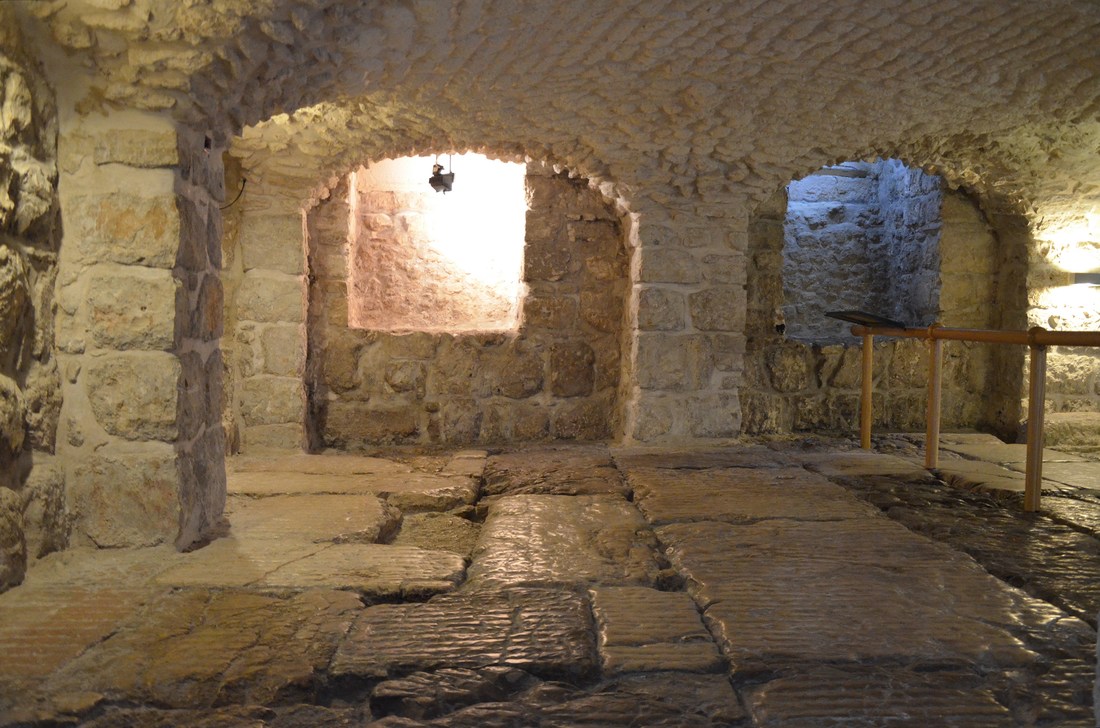
[Listen to an audio version here]
What empowers us to give gifts to others? I’m not talking here about the things we give out of fear, out of duty, or out of desire for response. I’m talking about that spontaneous giving that flows into other people’s needs and brings help and healing.
I think that Ralph Waldo Emerson had the idea in his helpful book, The Conduct of Life:
The first wealth is health. Sickness is poor-spirited, and cannot serve any one; it must husband its own resources to live. But health or fulness (sic) answers its own ends, and has to spare, runs over, and inundates the neighborhoods and creeks of other men’s necessities (972).
When we are unhealthy in body or spirit, we have very little that can flow over into others. When we are healthy in body or spirit, then we flow into others. So, our first priority is to get ourselves healthy and right.
But how do we do that? How do we find something that will cure our anxiety, our frustration, our despondency, our bitterness, our envy, and our lusts? How do we get ourselves on the right track in a way that will lead us to joyous giving?
We find the answer in what happened 2,000 years ago, when several wise men took the long trip from Babylon (modern day Iraq) to Jerusalem looking for a baby.
The Wise Men
Who were these wise men? Another name for them is Magi, but that doesn’t help that much. They were scholars. They were astronomers. As Charles Strohmer put it in his article on the star of Bethlehem, they “were learned in religion, diplomacy, literature, divination, esoteric wisdom, magical practices and the zodiac” (see his article here).
We find these “magi” already in the Bible in the book of Daniel. In Daniel 2:48, we read: “Then the king [of Babylon] placed Daniel in a high position and lavished many gifts on him. He made him ruler over the entire province of Babylon and placed him in charge of all its wise men.” The wise men of Christmas were probably the intellectual heirs of Daniel’s wise men.
These wise men were looking for “the Messiah” as well. They were looking for the ruler who would come and reign over the world and bring in universal peace. We know this because we have a huge collection of the ancient documents of these wise men written in stone in what is called cuneiform writing. One scholar commented on these tablets that throughout these tablets we have statements like the following: “when this or that occurs, a great king will arise in the west; then justice and righteousness, peace and joy will rule in all lands and bless all nations” (cited in R.C.H. Lenski’s The Interpretation of Matthew,).
So, what caused these wise men to actually come looking for that king at this time? They saw a sign in the sky, a star in the west.
It’s almost impossible for us who have electric light to appreciate the significance of the lights in the night sky for people who lived before electric light. All societies looked to the stars. In Babylon, they made this one of their most important studies. When a unique phenomenon appeared in the sky, they would have stood up and taken notice. This “star” was so unique that they made the long journey from Babylon to Jerusalem, Israel, following the star and looking for the newborn King (if you have interest in the “star,” I would refer you to Charles Strohmer’s article linked above).
Herod
So, where do you go, if you are looking for a newborn King? You go to the palace of a king. That’s just where the Magi went. They came to King Herod who was reigning in Jerusalem.
When he heard what the Magi were saying, he was disturbed, and, note, “all of Jerusalem with him.” If Herod was troubled, this was bad news for everybody. Herod was called Herod the Great because he was such a great builder. Many of his buildings stand today, and you can go see them if you go to Israel. They are impressive. However, Herod was also ruthless, as the rest of this chapter reveals. It reminds us that Jesus was born into a world of real sin, real problems, and real people.
Herod was an Idumean, a descendant of Esau. However, Judas Maccabeus, whose family had fought and won Jewish independence from Greece, conquered the Idumeans. They forced them to adopt the Jewish religion. So, Herod followed the Jewish religion. Consequently, it is not surprising that when the Magi arrived, he had a group of Jewish religious scholars at his court. They would have advised him on a variety of issues.
They all knew that the Scriptures prophesied a coming King. The Scriptures even told where he was going to be born. 700 years before Jesus came, the prophet Micah wrote, “But you, Bethlehem, in the land of Judah, are by no means least among the rulers of Judah; for out of you will come a ruler who will shepherd my people Israel” (Mt. 2:6).
And so it is to Bethlehem that the wise men went.
The Exceeding Great Joy
The wise men set out on their way. As they went, the star they had seen went ahead of them and led them to the place where Jesus was.
I want you to note that they were overjoyed when they saw the star. The original language uses four words to describe their joy. The old King James has captured it well: they rejoiced with exceeding great joy. They are ecstatic that they have found the star.
Why were they so overjoyed? Because they had a clear sign that the king that they had been looking for was coming.
But why did this give them such joy? We see this on a small level when a new coach, a new pastor, a new manager, a new president, or any other new leader comes to town. There is a hope and expectation that now things will be made right. Sometimes, they bring renewal and restoration. The new leader may be a Dan Mullen who brings the team to the SEC title game and competes. Or, he may be a Jeremy Pruitt who does, well, less. Either way, the new leader always disappoints in at least some ways because no leader can fulfill all our expectations for good.
King Jesus is different. This King is one who is going to make everything right. He is going to restore all that was lost. In the words of Dostoevsky, “something so precious will come to pass that it will suffice for all hearts, for the comforting of all resentments . . .” That’s what leads people to rejoice with exceeding great joy, even in the midst of all the humiliating absurdities of life. That’s what true joy is. It is the elation of spirit that arises from the firm expectation that all things will turn out well. This is the assurance our King brings. This is why the wise men rejoiced with exceeding great joy.
And what did that lead them to do? “On coming to the house, they saw the child with his mother Mary, and they bowed down and worshiped him. Then they opened their treasures and presented him with gifts of gold, frankincense and myrrh” (Mt. 2:11). It led them to give. They brought expensive gifts to the child and Mary and Joseph.
And that’s what joy does. It “runs over, and inundates the neighborhoods and creeks of other men’s necessities.” That’s what happens to us when we are rooted in faith in King Jesus that causes us to rejoice with exceeding great joy. We give.
Our text tells us the way to joy. We’ve got to “see” the star and “see” the King. We do this now not with the sight of the eyes but with the sight of faith. As Peter put it, “We also have the prophetic message as something completely reliable, and you will do well to pay attention to it, as to a light shining in a dark place, until the day dawns and the morning star rises in your hearts” (2 Pet. 1:19).
That’s why I make it my goal each morning, whether for a long or short time, to meditate on the truth of the reign of King Jesus and the assurance that He is working all things together for my good and that not a hair can fall from my head without His will.
That’s the star that’s always shining for us. Each day, we can look up and see it. When we see it with the eyes of faith, it will cause us to rejoice with exceeding great joy. This joy will flow over in gifts to others. In this way, the reign of King Jesus will be evident in our lives and shine like a star that will lead others to Him. That’s what God is doing in the world. It is a foundation to enable us in all times, in every place, and in every circumstance to find a joy that can rejoice with exceeding great joy. It is a joy that can exist in a disappointing year and in a world with real sin, real problems, and real people. Amen.


